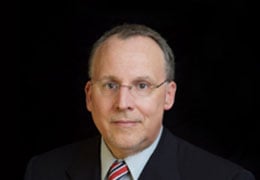A graduate of Temple University and PCOM and board certified in Family Medicine and Geriatric Medicine, Dr. Pettinelli has been practicing in Mt. Laurel since joining his father’s practice in 1984.
Dr. Pettinelli brings an unparalleled level of experience to both his patients and the Total Access Medical network. As one of the most respected physicians in the South Jersey area, Dr. Pettinelli places a strong emphasis on providing complete and quality care to his patients.
A guest lecturer at The Philadelphia College of Osteopathic Medicine, Dr. Pettinelli is a member of the American Medical Association, the American Osteopathic Association, the American College of Osteopathic Family Practitioners, the New Jersey Association of Osteopathic Physicians and Surgeons, and the American Academy of Anti-aging Medicine.
Here's Dr. Pettinelli, in his own words.
Your father was a physician. Take us back to that moment when you first decided to become a doctor. How much of an influence did your father have on that decision?
I would have to say that being a doctor was the only thing that I ever wanted to do. I cannot think of a time when I ever considered being anything other than a doctor. I remember going to hospitals and nursing homes with my father on Sunday mornings at the age of ten. From the time I was a medical student, I felt at home in an office, hospital, or nursing home.
If you had to describe the way you practice medicine in one or two sentences, what would you say?
The most important thing is to listen to the patient. A careful history and physical examination will give you the diagnosis more than 80% of the time.
Discuss your decision to transition to the concierge medicine model. Was there one moment of clarity, or did a bunch of things influence you to take this path?
I saw what was happening in medicine. I was getting farther and farther away from what I was trained to do: treat people. I was spending more time supervising my employees, doing paperwork delegated by insurance companies, and practicing the business of medicine. I had read about concierge medicine and when the opportunity presented, I knew it was the right thing for me.
One of your specialties is geriatric medicine. What's your approach when it comes to working with seniors, and why might concierge medicine make sense for this population?
The average geriatric patient tends to have six or more diagnoses. Obviously, more time is needed to treat the complex nature of multiple diseases occurring at the same time. Concierge medicine gives me the necessary time to spend with patients so I can deal with their medical and social issues.
According to your bio on the TAM website, your special interests include "alternative medicine and anti-aging." Tell us more about those interests.
Alternative medicine and anti-aging medicine fall into the scope of what is called Holistic Medicine. I recently came across a definition for Holistic Medicine as any treatment that is shown to work. This means it doesn't necessarily have to be from a pharmaceutical company to work. I will often offer an alternative treatment to a patient as a first option. With regard to anti-aging, I have studied the effects of aging for 30 years. Anti-aging medicine can be looked at as a form of preventative medicine with the goal being the optimal health and functioning of the person.
Now for some fun questions, speed-round style…
- Favorite food? Linguine pescatore.
- Favorite form of exercise? Bicycling (I just built a 20-speed road bike from the frame up).
- What are you reading right now for pleasure? I am reading Making War in the Name of God by Christopher Catherwood (the author was my daughter's professor at Cambridge University).
- Favorite way to relax after work? I build electric guitars as a hobby.
- Share something that not too many people know about you. Most people do not know that I was a musician and had an opportunity to do studio work in New York when I was in college.
April is National Donate Life Month. The goal is to "encourage Americans to register as organ, eye and tissue donors and to celebrate those that have saved lives through the gift of donation." Can you share your thoughts on the importance of organ donation and perhaps address some of the fears people might have about signing up to become an organ donor?
What greater gift can one give then helping to save a life? In my training, I was sometimes involved in organ procurement. To see a person come back from near death because of a transplanted organ is a wondrous thing. Over the years, I have had patients with heart, lung, kidney, and liver transplants who would not be here today without these procedures.
There are many misconceptions about organ donation. Many people believe that they are not healthy enough to donate or that the doctors will not try as hard to save them if they know that they are an organ donor. Also some people believe that there is a black market for organ donations and this keeps them from donating. Allaying these misconceptions and fears would increase the pool of organ donors.
Thank you for your time, Dr. Pettinelli!
Chances are good that if you're reading this newsletter, you're a fan of the concierge medical model and possibly even enrolled in a program.
But if you're on the fence or confused by all the information available online…or if you know someone who is looking into concierge medicine… then we have the perfect resource.
Is Concierge Medicine Right for You? A Helpful Checklist from Total Access Medical
This checklist will guide you through the many different things you need to consider, including the big three Cs: costs, control, and coordinated care.
You can download it here—it's free.

